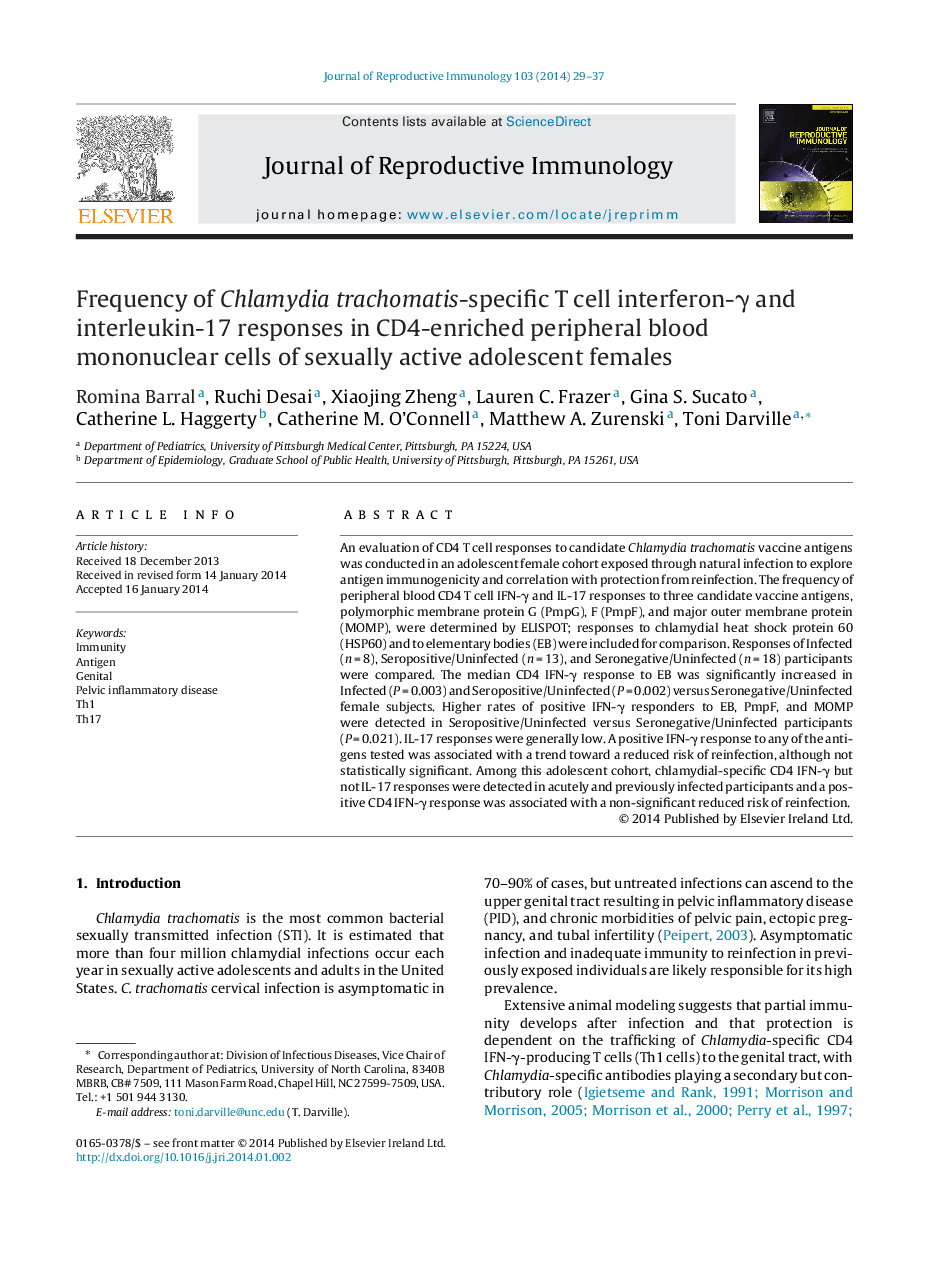| Article ID | Journal | Published Year | Pages | File Type |
|---|---|---|---|---|
| 3961347 | Journal of Reproductive Immunology | 2014 | 9 Pages |
An evaluation of CD4 T cell responses to candidate Chlamydia trachomatis vaccine antigens was conducted in an adolescent female cohort exposed through natural infection to explore antigen immunogenicity and correlation with protection from reinfection. The frequency of peripheral blood CD4 T cell IFN-γ and IL-17 responses to three candidate vaccine antigens, polymorphic membrane protein G (PmpG), F (PmpF), and major outer membrane protein (MOMP), were determined by ELISPOT; responses to chlamydial heat shock protein 60 (HSP60) and to elementary bodies (EB) were included for comparison. Responses of Infected (n = 8), Seropositive/Uninfected (n = 13), and Seronegative/Uninfected (n = 18) participants were compared. The median CD4 IFN-γ response to EB was significantly increased in Infected (P = 0.003) and Seropositive/Uninfected (P = 0.002) versus Seronegative/Uninfected female subjects. Higher rates of positive IFN-γ responders to EB, PmpF, and MOMP were detected in Seropositive/Uninfected versus Seronegative/Uninfected participants (P = 0.021). IL-17 responses were generally low. A positive IFN-γ response to any of the antigens tested was associated with a trend toward a reduced risk of reinfection, although not statistically significant. Among this adolescent cohort, chlamydial-specific CD4 IFN-γ but not IL-17 responses were detected in acutely and previously infected participants and a positive CD4 IFN-γ response was associated with a non-significant reduced risk of reinfection.
